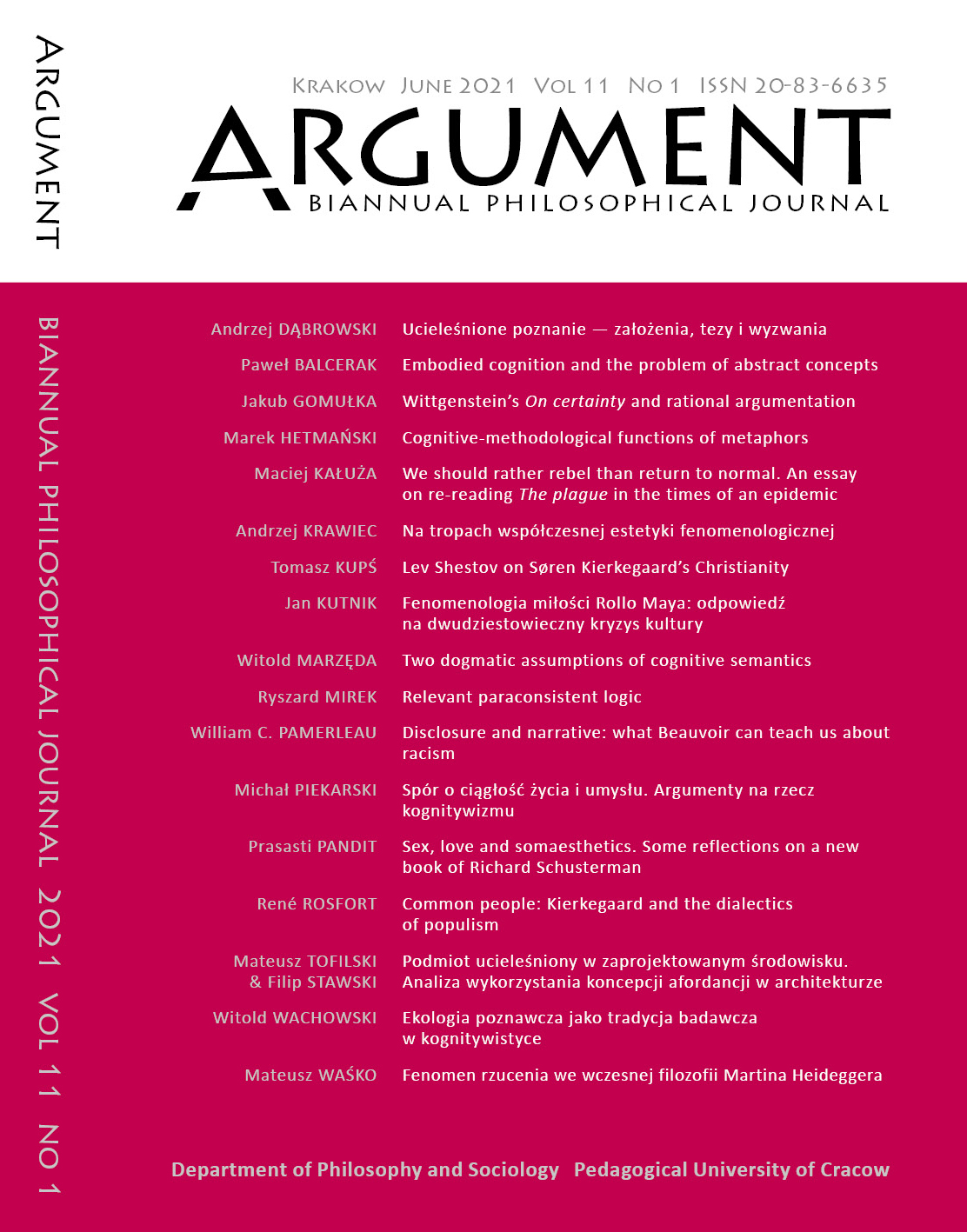Wittgenstein’s On certainty and rational argumentation
Słowa kluczowe:
Ludwig Wittgenstein; On certainty; hinge propositions; moral argumentsAbstrakt
In this paper, I discuss the question of the possibility of rational argumentation between two parties who fundamentally disagree. Wittgenstein’s fictitious example of George Edward Moore encountering a king who thinks that the earth came into existence with his birth serves as an example of such a disagreement, but the paper sheds light on differences in moral views rather than epistemic ones. It seems that the second (and third) Wittgenstein rules out the possibility of any rational debate between people who do not share basic beliefs regarding, for instance, the criteria of decency. Contrary to this view, I argue that the so-called “hinge epistemology” developed in On certainty makes room for extra-systemic argumentation as it differentiates hinge propositions — basic certainties that regulate our standard ways of reasoning — from criteria of meaning. One result of this distinction is that we are actually able to understand what the rejection of our hinge propositions would mean and hence we can have doubts about them. The basis for such doubts can be tensions raised by our emotional and behavioural reactions, something Wittgenstein calls “primitive”.


